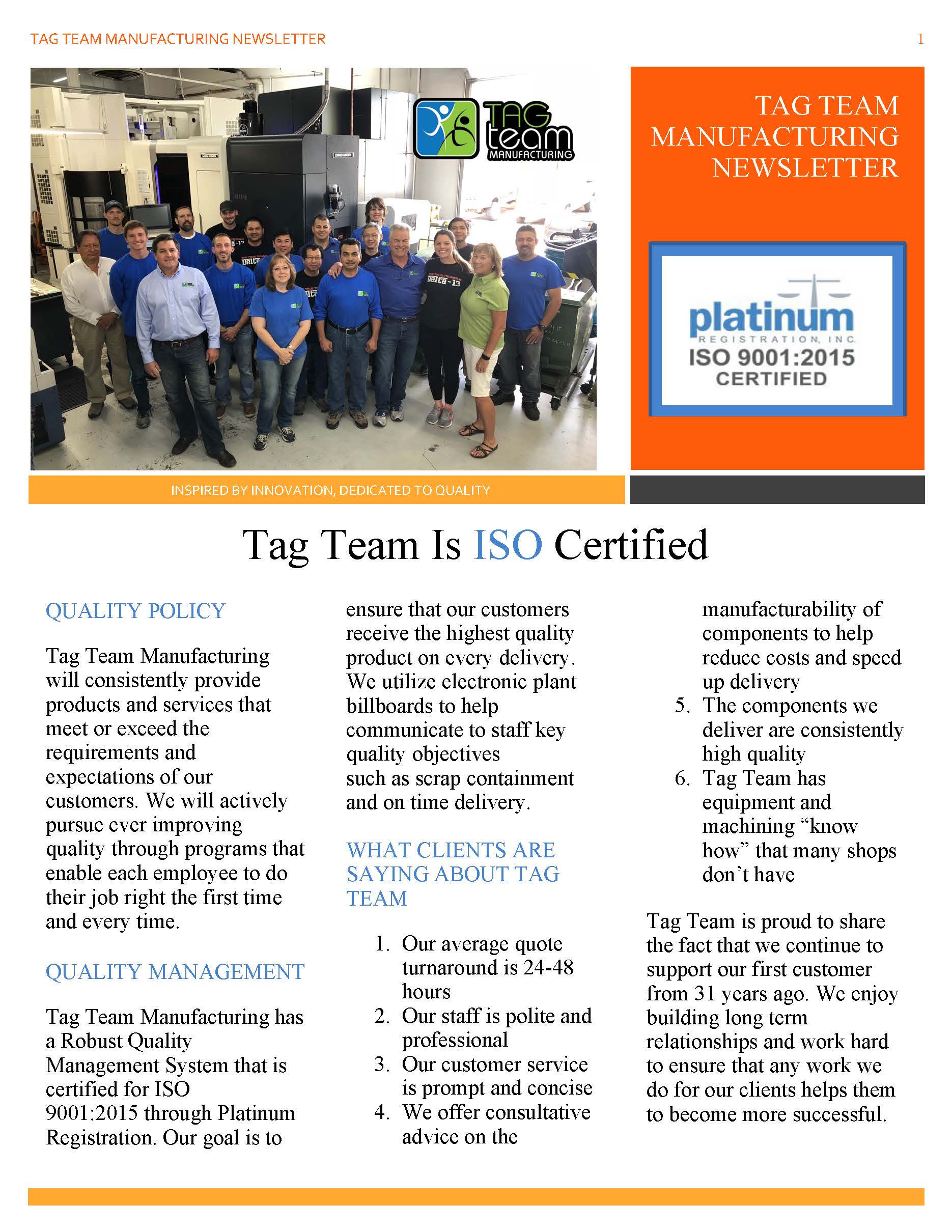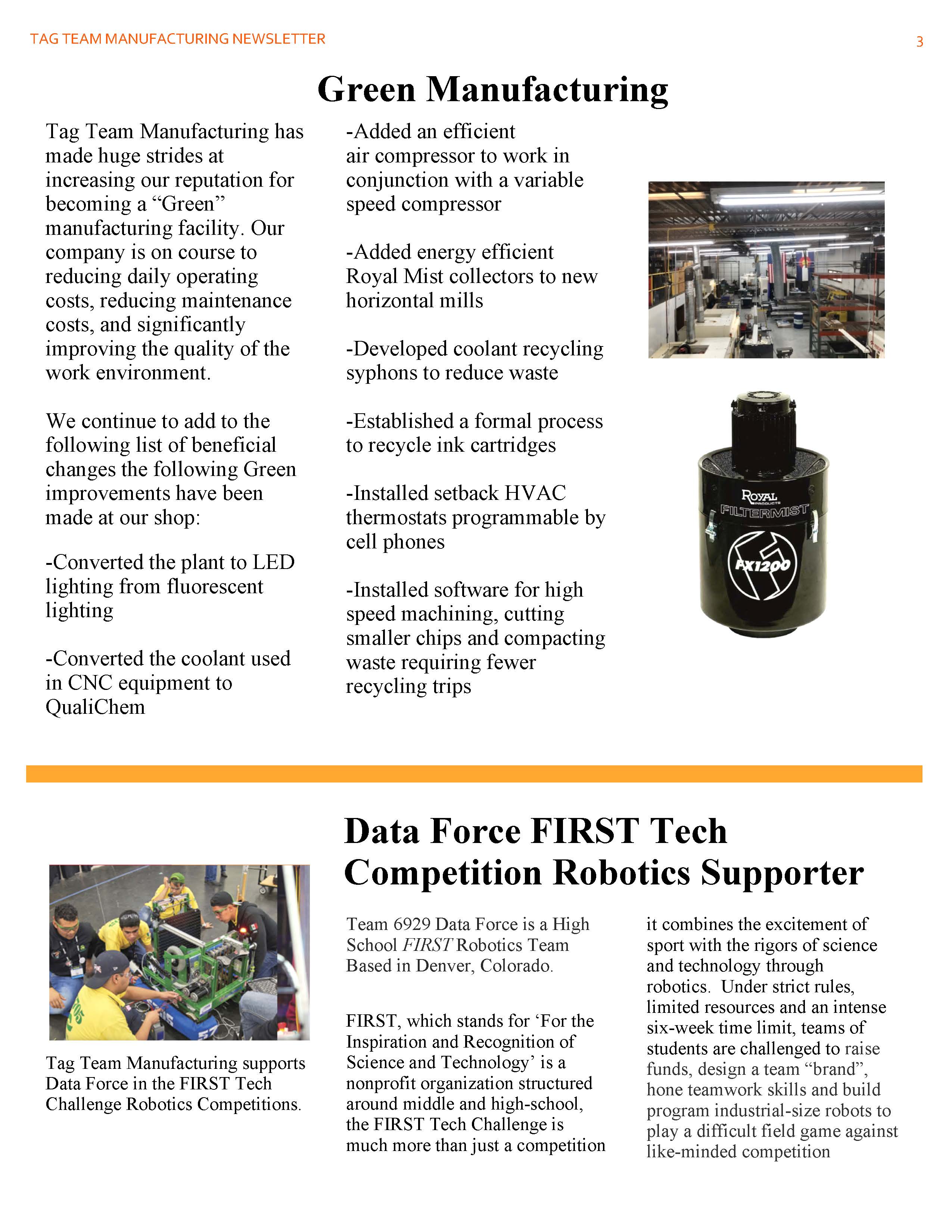





International Organization for Standardization (ISO) is an independent body that develops standards. Standards developed regulate services, products, and systems to guarantee safety, quality, and efficiency. ISO certification is essential for any machine shop. Why?
Some ISO standards govern custom machine shops. The ability to get certified gives several benefits to your business. For example, ISO 9001 sets out criteria for a company’s quality management system (QMS). ISO certification shows that your precision manufacturing company values its products and services.
Here are the top ten benefits of ISO certification to a custom machine shop.
1. Boosts Staff Morale
When business processes are well-managed and defined, employees feel more secure. They enjoy excellent job satisfaction in return. This contributes towards the success of your CNC manufacturing shop. Also, it makes your team satisfied, passionate and motivated towards achieving a common goal.
Motivated employees adhere to and carry out all processes put in place. This allows for quick identification and resolution problems and challenges at the workplace. Lots of research demonstrate the relationship between staff satisfaction and a company’s success. Motivating employees is excellent, but keeping them happy is the real deal.
It is advisable to have a complete QMS. A complete one contains documents, procedures, processes, and responsibilities in a formalized system.
For your business to thrive, it must follow QMS procedures and requirements. ISO certification also provides guidelines on employee training. For instance, CNC machinists need training to cope with ever changing technology. They also need training programs tailored to suit evolving customer needs.
With ISO certification, your business operates well when key people leave. The system implemented enhances teamwork.
2. Customer Satisfaction
Universal acceptance of ISO standards ensures that client confidence is a top priority. Leading CNC manufacturing companies enjoy consistency, efficiency, and dedication thanks to ISO.
ISO standard tracks customer satisfaction levels and reports issues and complaints. Businesses that seek and maintain ISO certification prove that they value quality assurance.
Additionally, areas important to your customers never go unnoticed. ISO certification outlines best approaches and practices based on customer needs and expectations. Manufacturing products that reduce costs and waste enables you to deliver quality products. As a result, it reinforces customer loyalty to your custom machine shop.
3. Improves Supplier Relationships
Best supplier relationships are primary to ISO certification. When followed, ISO certification processes streamline documentation and testing. In return, quality raw materials and general supplies get to your business. The process needs a rigorous evaluation of new suppliers before cutting deals. This enhances consistency on how and where your custom machine shop sources its supplies.
4. Promotes Proper Documentation
ISO standard certifications require proper documentation of business operations. Proper documentation shows any errors, changes, and discrepancies. Appropriate documentation process guarantees consistency throughout production boosting accountability.
Moreover, traceable records are available in case of substandard, non-compliant products or raw materials. This also helps you to pinpoint areas of weaknesses and unaccountable staff.
5. Improves Processes
ISO certification helps you manage reviews, audit processes, and improvement processes based on data. To improve business processes, careful planning and implementation based on facts obtained is crucial. Such data comes from system analysis and documentation. As a result, it helps you to make informed decisions on your business.
Streamlining business processes reduces unnecessary paperwork. Through improved processes, you focus on what’s important- innovation, enhanced growth, happy employees and profitability.
6. Improves Efficiency
ISO certification determines the requirements necessary for a company to source quality management system certification. First, a machine shop must enhance customer satisfaction through efficient and extensive application of management systems. The application features the guarantee of conformity to customer relations and applicable regulatory requirements. In addition, a company should adopt implementation of processes for constant improvement of the system.
Also, a machine shop in Denver has to demonstrate its capabilities to offer products and services that meet applicable regulatory and customer needs. Companies that undergo ISO 9000 QMS certification process strive to maximize quality and efficiency in their operations.
Once the company gets certified for QMS, establishment of precise processes commences. Guidelines are also put in place for all employees and CNC machinists to follow easily. That making transitions, training, and troubleshooting a breeze.
7. Increases Revenue
Several studies reveal that ISO certified companies enjoy improved financial performance and increased productivity as compared to uncertified companies. Having ISO certification for your Original Equipment Manufacturer and Denver Manufacturing business can enable you get partnerships from private and public sectors.
With regards to public sector tenders, ISO certification is a strong indication that a business is credible and well-managed. It eliminates the need for rigorous and extensive due diligence.
Majority of private sector organizations have made it a mandatory requirement for suppliers and partners to have ISO certification. Certified companies demonstrate reliability in all business aspects, professionalism and value quality work.
8. Encourages Consistency
Consistency remains a recognized foundation of ISO. All business processes from research, development, production, to shipping, are exhaustively defined, outlined, and documented. Room for error is minimized significantly. The process of making changes to a custom machine shop process is documented. It guarantees that all alterations made are well designed and executed with the best possible strategy to enhance efficiency.
ISO recommends various industries to use particular software formatting in reports, data collection, and product labelling. Consistent formatting eliminates the risks of using obsolete labels or documents.
9. Get Global recognition
The International Organization for Standardization (ISO) is wholly recognized as a global benchmark authority for quality management. When your machine shop gets ISO certified, global doors open. International recognition helps you engage international business community, partners and customers.
10. Better Management
Proper analysis and reporting are a fundamental in efficient and prosperous management of any business. The requirements and guidelines set by ISO standards help precision manufacturing businesses to seamlessly manage all their operations. Also, it helps in realizing factual approach to decision making.
For instance, ISO 9000 QMS standards elaborate clear instructions for process reviews and audits. In return, the approach assists in information gathering techniques and decision-making based on factual data from your business.
ISO certification increases the chances of a custom machine shop thriving in business. It makes your employees satisfied, clients safe and confident, and takes your business global. As the world continues becoming more globalized, the need for universal standardization becomes undisputed.
Today, it takes two to tango in business. What you produce contributes to a global business community. Are you interested in working with an ISO certified company? Get in touch with Tag Team Manufacturing.
ISO 9001 originated from the conglomeration of two different organizations namely United Nations Standard Coordinating Committee (UNSCC) and International Federation of the National Standardizing Associations (IFNSA) in 1946 when over 25 nations convened at the Institute of Civil Engineers in central London.
ISO (International Organization for Standardization) creates all the essential documents that provide specific guidelines, requirements, specifications, or characteristics that are used to ensure that materials, processes, products, and services are highly fit for their purpose. The body has published over 22025 International standards which can be purchased from the ISO store. The standards cover all sectors including manufacturing in USA, mechanical engineering schools, and even CNC automation.
The ISO 9001 standards bring real and more measurable benefits in various sectors since the standards underpin the technology most industries rely on and ensures quality is adhered to in every stage of CNC machining and CNC manufacturing. Some of the benefits of being ISO 9001 certified include improved efficiency and cost savings, widened market potential, higher level of client service which leads to higher customer satisfaction, and compliance with procurement tenders.
What Are the Steps to Becoming ISO 9001 Certified?
Obtaining an ISO certification for US manufacturing schools or any other industry player requires a significant investment of time, effort, and money. This is a process that will take some time to complete. Below are the essential steps to be followed while seeking ISO certification.
Select a Credible Certification Body
The journey towards being ISO certified starts with identifying a qualified certification body to help you in the process. Since most of the ISO 9001 standards for mechanical engineering are based on a three-year cycle, most of the certification parties will expect the company to sign up a minimum three-year agreement to be considered. Some of the certification bodies will insist on visiting your company several times a year to assess the progress, but a single visit is usually enough to establish the milestones achieved towards the certification.
Develop a Management System
Developing a Management System is an essential part of achieving ISO certification standards. There is the Quality Management System for ISO 9001 standard and the Environmental Management System for the ISO 14001 standard. The core components of the quality management system include analysis and improvement, provision of resources, processes of management activities, and product realization. Once you’ve developed your management system, you’ll be required to fully implement the system, verify if it’s effective, and register it.
Stage 1 Audit
Once you have the quality management system in place, a thorough audit of company activities is what follows. An auditor evaluates your existing systems and provides a well-analysed report identifying suitable actions that need to be undertaken to meet the specific standard. Stage 1 audit is mainly used as a roadmap to the next phase of auditing, so there is no need to worry if you feel like the company is underprepared.
Stage 2 Audit
Stage 2 audit involves fixing all the problems that were identified in stage 1 audit. Once you’ve implemented in the recommendations put forward in the report of stage one audit, an auditor will come in again to complete stage two audit. The purpose of stage two audit is to determine the effectiveness and efficiency of your management system and to establish whether it meets all the requirement of the ISO 9001 standards that you want. If the system is good and it meets all the requirements, then the company will be recommended for ISO certification.